Books
Books

Collection Histoires des Suds
Éditions Karthala, France

La formation du candomblé. Histoire et rituel du vodun au Brésil
Luis Nicolau Parés
2011
En conjuguant les traditions orales et les rituels aux documents manuscrits et imprimés, Luis Nicolau Parés a rédigé une remarquable histoire des esclaves amenés au Brésil, originaires de la région où se trouvait le puissant royaume du Dahomey, dans l'actuelle République du Bénin. Ces Africains, dénommés Jeje à Bahia, constituent une identité ethnique dont la formation, pourtant connue, n'avait jamais fait l'objet de l'étude approfondie que le lecteur trouvera dans ce livre. Parmi les processus culturels qui contribuèrent à établir la nation jeje, il faut souligner la religion des vodun, les dieux dahoméens.
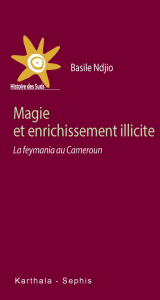
Magie et enrichissement illicite. La feymania au Cameroun
Basile Ndjio
2012
Depuis les années 1990 sont apparues au Cameroun de nouvelles figures de la réussite socio-économique, symbolisées par de jeunes arnaqueurs professionnels plus connus sous le vocable de feymen. Opérant tant au plan local qu'à l'échelle internationale, ces escrocs rusés ont donné naissance à une économie morale de l'arnaque et de l'escroquerie, communément appelée feymania. Véritable phénomène de société qui se déploie dans un contexte local marqué par la crise économique, la corruption généralisée, le tribalisme officiel et surtout la marginalisation des cadets sociaux sans connexions politiques, la feymania charrie tous les fantasmes du gain facile et permet à des gens d'en bas et sans qualifications d'entretenir l'espoir d'une vie meilleure.
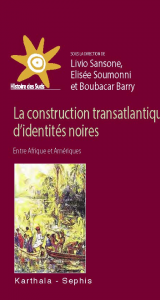
La construction transatlantique d'identités noires. Entre Afrique et Amériques
Livio Sansone, Elisée Soumonni, Boubacar Barry
2010
Il y a près de quinze ans L’Atlantique noir de Paul Gilroy révolutionnait notre regard en mettant cet océan au coeur de l’histoire des Africains. Les textes réunis ici par Livio Sansone, Elisée Soumonni et Boubacar Barry à l’issue d’un colloque tenu à Gorée en 2002, prolongent cette nouvelle approche des identités africaines. La racialisation des Noirs apparaît comme une réalité moderne, inscrite dans une histoire, celle des séquelles de la traite, et dans un espace, l’Atlantique. Ce livre est un antidote aux images négatives de l’Afrique, mais aussi contre tous les fantasmes passéistes, qui font écho, à l’envers, aux préjugés européens.
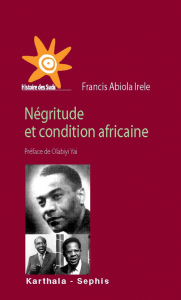
Négritude et condition africaine
Francis Abiola Irele
2008
À partir de l'oeuvre de Césaire et de celle d'autres grands écrivains et hommes politiques, parmi lesquels Senghor, Soyinka, Achebe, Cheikh Anta Diop, l'auteur propose une réflexion culturelle et sociale approfondie, nourrie de sa triple filiation - yoruba, britannique et française. Il analyse ici les enjeux, les courants, les revirements qui composent la très riche histoire de la Négritude et, à travers elle, de la condition africaine elle-même.
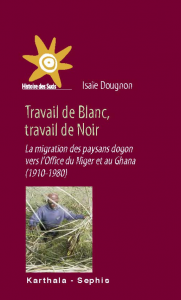
Travail de Blanc, travail de Noir. La migration des pays dogon vers l'Office du Niger et au Ghana (1910-1980)
Isaïe Dougnon
2007
Le pays dogon (Mali), très connu des touristes du monde entier pour son folklore, l'est beaucoup moins pour sa vie économique et sociale. L'auteur comble cette lacune dans cet ouvrage d'anthropologie historique sur la migration des paysans dogon vers le Ghana et vers l'Office du Niger (un gigantesque projet agricole mis en place par la colonisation française à partir des années 1930)."Travail de Blanc"désigne l'activité sur les machines sous la direction de colons blancs, "travail de Noir" renvoi aux tâches agricoles (maraîchage, riziculture) essentiellement menées en milieu paysans africain. Cet ouvrage offre une lecture réaliste des changements sociaux assumés par les Africains eux-mêmes dans la deuxième moitié du XXe siècle, tant sous la période coloniale qu'après la décolonisation.
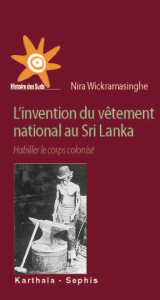
L'invention du vêtement national au Sri Lanka. Habiller le corps colonisé
Nira Wickramasinghe
2006
Dans cet ouvrage, l'auteur étudie tout particulièrement les significations politique, économiques et populaires assignées à l'habillement et aux vêtements dans les contextes coloniaux. Si elle prend comme étude de cas l'invention du vêtement national à Ceylan pendant la colonisation anglaise, au XIXe et au XXe siècle, elle étend son analyse à ce qui a eu lieu en Inde ainsi qu'en Afrique, à la même période.
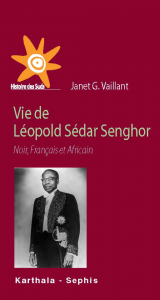
Vie de Léopold Sédar Senghor. Noir, Français et Africain
Janet G. Vaillant
2006
La biographie de Senghor éclaire aussi bien notre compréhension de l'Afrique des indépendances et de ses dirigeants que l'histoire intellectuelle et littéraire de la France et des Afro-Américains. Janet Vaillant souligne les liens entre l'expérience personnelle de Senghor, son oeuvre politique, sa poésie et les effets de son idéologie politique sur la construction de l'Etat au Sénégal. Elle nous propose également une réflexion sur le contexte plus large de son oeuvre, sa dette et sa contribution à la pensée et à la littérature noire en France et en Amérique et sur son importance comme dirigeant d'un peuple colonisé cherchant à définir de nouveaux rapports avec l'Occident industrialisé.
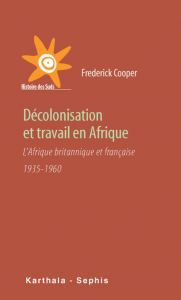
Décolonisation et travail en Afrique. L'Afrique britannique et française, 1935-1960
Frederick Cooper
2004
Publié en anglais en 1996, cet ouvrage change notre perception de l'histoire"africaine" et "impériale". L'auteur analyse les diverses conceptions des politiques coloniales liées au tavailleur africain et montre comment syndicats et politiciens africains utilisèrent le nouveau vocabulaire des changements sociaux pour revendiquer des salaires et des bénéfices égaux, et le partage du pouvoir.
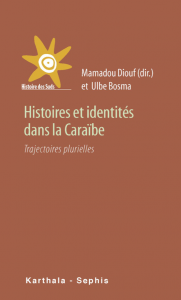
Histoires et identités dans la Caraïbe. Trajectoires plurielles
Mamadou Diouf et Ulbe Bosma
2004
La Caraïbe, région fondatrice du regard européen sur le Nouveau Monde, a été pendant plusieurs siècles l'un des lieux d'expérimentation de l'esclavagisme moderne en tant que point d'aboutissement de la traite atlantique. Espace insulaire à l'hétérogénéité sans cesse remaniée, aussi bien au plan des mélanges et métissages de populations autochtones ou "importées" (esclaves noirs d'Afrique évidemment mais aussi des travailleurs asiatiques sous contrat ultérieurement) qu'à celui des éléments économiques, sociaux, culturels, religieux et linguistiques des sociétés, la Caraïbe reste encore largement méconnues des lecteurs français en sciences sociales et historiques. La présence de trois sur quatre des départements d'outre-mer (Guyane, Guadeloupe et Martinique) dans cette partie du monde n'a malheureusement, et paradoxalement, que peu contribué à améliorer cette connaissance. Un ouvrage dirigé par Mamadou Diouf et Ulbe Bosma.
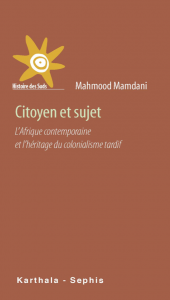
Citoyen et sujet. L'Afrique contemporaine et l'héritage du colonialisme tardif
Mahmood Momdani
2004
M. Mamdani nous propose une relecture complète de l'histoire coloniale et postcoloniale des Etats de l'Afrique noire contemporaine. Il faut dépasser, selon lui, l'opposition entre les partisans, modernistes et modernisateurs, du droit et de la société civile et les partisans, communautaristes, qui défendent les tribus et les cultures. Cette démarche conduit à reconsidérer l'héritage institutionnel, légué par le colonialisme, ainsi que les types de résistance que ces pouvoirs ont suscités. La problématique centrale de la démonstration veut renverser un des lieux communs les mieux établis, à savoir le caractère soi-disant exceptionnel de l'apartheid et de la ségrégation institutionnelle (celle qu'a théorisé le général Smuts, l'un des fondateurs de l'Union sud-africaine).
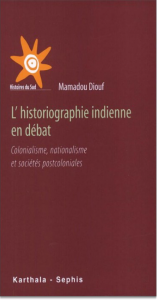
L'historiographie indienne en débat. Colonialisme, nationalisme et sociétés postcoloniales
Mamadou Diouf
1999
Ce recueil vise à porter à la connaissance de lecteurs francophones, notamment africains, le riche patrimoine des historiens indiens regroupés depuis vingt ans au sein du groupe d'étude sur les Subalternes. L'expression de subalterne (ou subordonné) est empruntée à Antonio Gramsci et renvoie aussi bien à la notion de pouvoir aux plans idéologiques et culturels qu'à la paysannerie.

Collection Encuentros
Editorial Universidad Nacional de Cuyo, Argentina
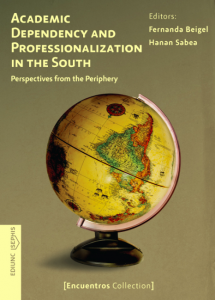
Academic Dependency and Professionalization in the South. Perspectives from the Periphery
Fernanda Beigel, Hanan Sabea
2014
Since 1960, the presence of an unequal international structure in the production and circulation of knowledge in the international scientific system has been recognized, a phenomenon that has been called academic dependence. This reality motivated actions to promote the formation of scientific cadres and stimulate the link between institutions and academics of the periphery. This, taking into account that the structures of knowledge production in the periphery were compromised by colonialism and its lasting effects.
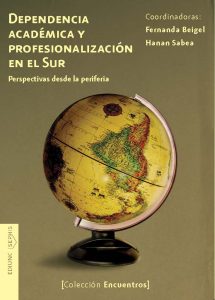
Dependencia académica y profesionalización en el Sur. Perspectivas desde la periferia
Fernanda Beigel, Hanan Sabea
2014
Desde 1960, se reconoce la presencia de una estructura internacional desigual en la producción y circulación del conocimiento en el sistema científico internacional, fenómeno que se ha denominado dependencia académica. Esta realidad motivó acciones para promover la formación de cuadros científicos y estimular el vínculo entre instituciones y académicos de la periferia. Esto, teniendo en cuenta que las estructuras de producción de conocimiento de la periferia se veían comprometidas por el colonialismo y sus efectos perdurables.

Collection Estudios Subalternos
Instituto de Estudios Peruanos
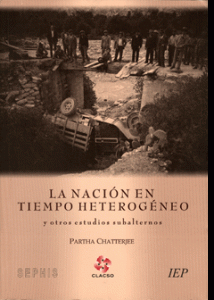
Partner:

La nación en tiempo heterogéneo y otros estudios subalternos
Partha Chatterjee
2007
Partha Chatterjee es uno de los intelectuales más importantes de la escena mundial contemporánea. Formado en Ciencias Políticas, destaca por sus ensayos coyunturales, sus trabajos históricos y por sus sólidas reflexiones antropológicas. En los ensayos que aquí presentamos, Chatterjee arremete contra las categorías de la ciencia política a las que las hace explotar en los contextos poscoloniales. Este libro representa uno de los esfuerzos más brillantes en la renovación del pensamiento social contemporáneo.
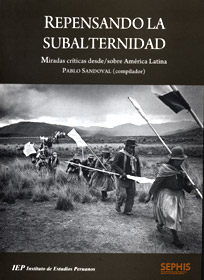
Repensando la subalternidad. Miradas críticas desde/sobre América Latina
Pablo Sandoval
2009
Esta compilación constituye una muestra del fructífero encuentro entre historia y antropología para comprender América Latina. Incorporando perspectivas innovadoras y replanteando convencionalismos, este libro representa un corpus reconocible para discutir las nociones de subalternidad, globalización, nacionalismo, desarrollo y desigualdad, desde un ángulo histórico y comparativo. Dirigido principalmente a estudiantes y docentes universitarios de ciencias sociales, busca fomentar la incorporación y discusión crítica de nuevas perspectivas en el ámbito académico latinoamericano, claves para entender viejos procesos y tópicos modernos con renovados enfoques y conceptos.

Collection
Tulika Publishers, India
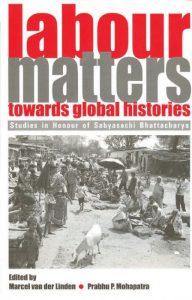
Labour Matters. Towards Global Histories. Studies in Honour of Sabyasachi Bhattacharya
Prabhu Mohapatra , Marcel van der Linden
2009
This volume, in honour of Sabyasachi Bhattacharya, brings together a set of essays that highlight some of the major transformations in the field of labour history today. The present juncture is one in which the geographical boundaries of the discipline, which were narrowly configured around the nation-state, are being challenged; and the analytical category of labour, for long identified with the industrial, unionized and male worker, has been stretched to include hitherto marginalized, informal workers. The shift away from Eurocentric comparisons in recent years has meant a questioning of the spatial, temporal and relational binaries that were dominant in the writing of labour history earlier. By focusing on sites, forms and relations of labour that habitually cut across the classical divides of labour history, the essays explore connections between events and processes across time and space. They demonstrate that global history is not just history at a global scale, but a macro-view of historical processes of importance to human societies and their systematic analyses at all scales. Global history, the contributions in this volume show, can be solidly based on micro-historical studies, if these studies connect with the larger areas of inquiry.
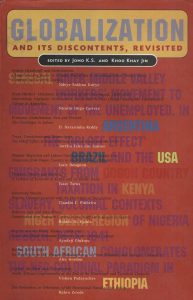
Globalization and Its Discontents, Revisited
Jomo Kwame Sundaram , Khoo Khay Jin
2003
There have been few who have tried to grasp globalization as a process that pre-dates contemporary processes, back to the times of the trading empires centred on Asia and the Indian Ocean, or even modern imperialism from the late 19th century. The essays in this collection seek to explore one of the many aspects of this dialectic. The authors, of diverse theoretical orientations, generally do not discuss globalization directly. They take it to be dialectical process of some historical depth, going back at least to the European conquest of the New World. What they seek to explore is that while the process of globalization is, indeed, global, its presence, its structuring and its effects are felt, in varied ways, very much at the local level. In doing so, they have, directly or indirectly, rescued local actors from the more usual portrayal of being mere victims. Instead, in most of the essays, local actors emerge very much as active participants, making history, or crafting their conceptual categories, even their pottery, not in circumstances of their choosing nor as they may have liked, but making it, all the same.

The New Development Economics After the Washington Consensus
Jomo Kwame Sundaram , Ben Fine
2006
Development economics emerged in the 1950s and, during its first quarter century, evolved in the context of both the Cold War and decolonization. The ascendance of free market conservatism in the west in the early 1980s was followed by the consolidation of the counter-revolution against the ‘old’ development economics, together with a corresponding promotion of neoliberal economic policies that came to be known as the Washington Consensus. Over the last decade or more, reaction against the Washington Consensus has gathered momentum, pioneered within mainstream economics by those who emphasize institutions and market imperfections, as opposed to the virtues of the market. The chapters in this book provide expert and critical, but readable and up-to-date, expositions of this ‘new’ development economics.
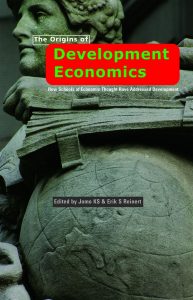
The Origins of Development Economics. How Schools of Economic Thought Have Addressed Development
Jomo Kwame Sundaram , Erik S Reinert
2008
This book reviews the history of economic thought to highlight these enduring developmental concerns in earlier economic discourses. This survey also shows that various schools of economic thought, over the years, have pointed to the role of the state in leading and coordinating economic transformation and progress. In the second half of the twentieth century, often static, abstract and formal approaches displaced historically informed and institutionally nuanced discourses. Thus, the narrow approaches of contemporary economics have marginalized greater appreciation of history and other social sciences.
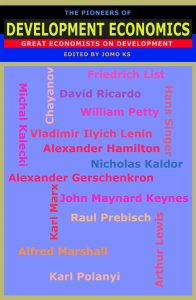
The Pioneers of Development Economics Great Economists on Development
Jomo Kwame Sundaram
2006
The history of modern economic thought associated with the emergence of industrial capitalism over two centuries ago was preoccupied with the question of economic transformation or development. This volume surveys important contributions to the economics of development by various economists, including many not normally considered as pioneers of development economics.

Collection
EDUFBA, Brazil
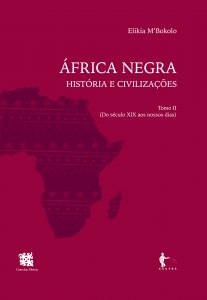
África negra – história e civilizações: – Tomo II (do século XIX aos nossos dias)
Elikia M’Bokolo
2011
Esta obra é o segundo volume do livro África negra: história e civilizações – Tomo I (até o século XVIII). Direcionada aos estudantes de História, Literatura, Ciências Sociais e Políticas, Direito e Economia, traz questões mais contemporâneas da África Negra, fazendo uma reflexão histórica e uma abordagem particular, mas global, sem excluir o passado desta região e suas revoluções mais recentes, através de documentos, bibliografia complementar, dados estatísticos, mapas e outros recursos, partindo do século XIX até os dias atuais.
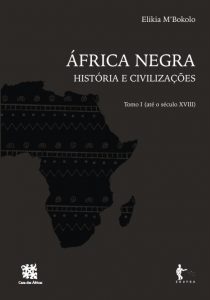
África negra: história e civilizações – Tomo I (até o século XVIII)
Elikia M’Bokolo
2009
África negra: história e civilizações – Tomo I (até o século XVIII), de Elikia M’Bokolo, cobre o período menos conhecido da História da África e um dos mais difíceis de abordar. Trata-se de um livro reflexivo e crítico que traça uma ampla escala de análise sobre origens e antiguidade das civilizações africanas. Longe de estar recheado apenas com as continuidades, este tempo longo do passado africano foi talvez o das intervenções contínuas, sob a forma de uma incessante bricolagem, de laboriosas adaptações ou de rupturas radicais.

Colonialismo, modernidade e política
Partha Chatterjee
2004
Esta é uma compilação de textos de autoria do indiano Partha Chaterjee, responsável pela publicação de dezenas de obras engajadas em temas políticos. Grande parte do livro fala de problemas, questões e situações globais tendo como exemplo episódios que marcaram a história da Índia no decorrer dos séculos.

Collection
Manohar Books, India
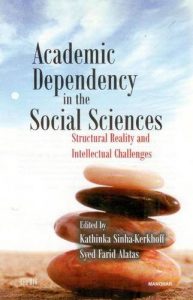
Academic Dependency in the Social Sciences: Structural Reality and Intellectual Challenges: Structural Reality & Intellectual Changes
Kathinka Sinha-Kerkhoff, Syed Farid Alatas
2010
This book deals with the academic dependency of scholars variously positioned in the South. All contributors to this book acknowledge that though place might play a different role in the contemporary globalized world, the location of people have not become irrelevant. However, there is limited knowledge about the impact of place among academicians differently located in the South and of the costs and benefits of academic globalization. The main purpose of this book therefore is to increase knowledge about the net result of such a calculus today for various regions in the South. Though all scholars in this book look upon academic dependency as a problem, there are differences of opinion as to what constitutes academic dependency, what its manifestations are, and howto cope with academic dependency.
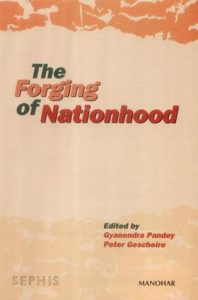
Forging of Nationhood
Gyanendra Pandey, Peter Geschiere
2003
This book demonstrates that the rhetoric of the inclusive claims of liberty and equality that nationalism and other related movements promote is accompanied by the practice of excluding numerous classes, communities and individuals from precisely these claims. Several papers in this volume show how members of excluded groups can suffer from nationalism's impatience with difference, and conclude with the hope of reforming the nation-state. Includes comparative essays on India, China, Africa and Latin America.
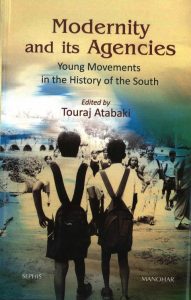
Modernity and its Agencies: young mouvements in the History of the South
Touraj Atabaki
2010
The first attempt to study the "young movement" beyond national frontiers, this volume details the transition from ignorance to science and progress that engulfed at least half of the globe. Contributors not only shed light on the history of the movement in a number of countries and regions, but also compare and contrast the development of it in different parts of Asia and Africa, from Calcutta to Rabat, from Isfahan to Bukhara, and from Istanbul to Kazan. The book explains that in the past 200 years, for many enlightened individuals the main intellectual and political enquiry was to find a path negotiating the rapidly changing world.
Other Books
Various Publishers
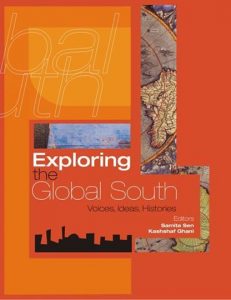
Exploring the Global South. Voices, Ideas Histories
Kashshaf Ghani, Samita Sen
2014
This publication represents 10 years of work of the Calcutta Editorial Team, headed by Samita Sen, to organize an e-Magazine for Sephis Programe. It contains more than 30 articles originally published at Sephis E-Magazine including interviews, analytic papers, book reviews and discussions concerning the work done as part of developing and implementing, in 2004, one of the first academic electronic magazines in the world. The book stands for recognition of the past ten years of enduring pioneering work of Sephis and also is an invitation to move this legacy into a further step. As Samita Sen puts it “in 2004, there was but a few electronic academic journals and Sephis E-Zine was a great novelty. Everyone wanted to write or speak to us. In 2014, the environment for publications is much more competitive and we should have another formulae.” This is our challenge for the next 10 years.
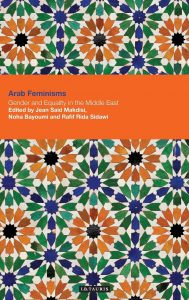
Arab Feminisms: Gender and Equality in the Middle East
Jean Makdisi, Noha Bayoumi, Rafif Rida Sidawi
2013
Is there a truly Arab feminist movement? Is there such a thing as 'Islamic' feminism? What does it meant to be a 'feminist' in the Arab World today? Does it mean grappling with the main theoretical elements of the movement? Or does it mean involvement at the grassroots level with everyday activism? This book examines the issues and controversies that are hotly debated and contested when it comes to the concept of feminism and gender in Arab society today. It offers explorations of the theoretical issues at play, the latest developments of feminist discourse, literary studies and sociology, as well as empirical data concerning the situation of women in Arab countries, such as Iraq and Palestine. It is certainly not surprising that when looking at the situation on the ground in many countries of the Arab World- particularly Palestine, Iraq and Lebanon, as well as Sudan- issues of war, civil conflict, military occupation and imperialism often override those of gender.
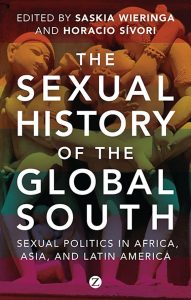
The Sexual History of the Global South. Sexual Politics in Africa, Asia and Latin America
Saskia Wieringa, Horacio Sívori
2013
The Sexual History of the Global South explores the gap between sexuality studies and post-colonial cultural critique. Featuring twelve case studies, based on original historical and ethnographic research from countries in Africa, Asia, and Latin America, the book examines the sexual investments underlying the colonial project and the construction of modern nation-states. Covering issues of heteronormativity, post-colonial amnesia regarding non-normative sexualities, women's sexual agency, the policing of the boundaries between the public and the private realm, sexual citizenship, the connections between LGBTQ activism and processes of state formation, and the emergence of sexuality studies in the global South, this collection is of great geographical, historical, and topical significance.
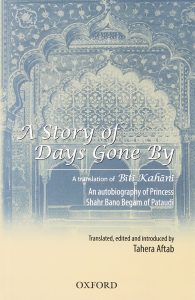
A Story of Days Gone By: A Translation of Biti Kahani - An Autobiography of Princess Shahr Bano Begam of Pataudi
Tahira Aftab
2010
A unique glimpse of the 'lived experiences' of the South Asian Muslim woman in the aftermath of the 'mutiny'.

Femmes dans les mouvements chrétiens africains : récits de vie à Lubumbashi
Marcel Ngandu Mutombo
2009
L'Afrique actuelle vit dans une grande pénurie, et la RDC y ajoute la violence de guerres récurrentes. A Lubumbashi, les hommes ayant baissé les bras, les femmes ont pris les choses en mains. Elles se sont d'abord retrouvées pour prier ensemble dans des associations chapeautées par les Eglises chrétiennes (catholiques, protestantes, kimbanguiste, méthodistes ainsi qu'une myriade d'Eglises de Réveil nouvelles venues) où elles parlent de la survie, des moyens de s'extraire du désastre social et souvent familial. Elles osent quitter l'espace privé pour l'espace public.

Atlas Histórico do Rio Bagé (1907-1926)
Augusto de Arruda Postigo
2008
Há pouco mais de cem anos, um surto econômico, ligado à exploração das seringueiras nativas da Amazônia, impulsionou a migração de um número considerável de trabalhadores do nordeste brasileiro para as regiões mais distantes do atual Estado do Acre. Inicialmente dispersos nos rio e igarapés dessa região, no seio da Floresta Amazônica, e distantes quase quatro mil quilêmtros de sua terra natal, esses trabalhadores construíram famílias, muitas vezes junto com os sobreviventes da etnias nativas, e transformaram a floresta em seu lar. Não só constituíram famílias na floresta, como também uma cultura e um modo muito próprio de se relacionar com as matas e os rios da região. Este trabalho trata da história e da vida dessa gente e de seus descendentes em uma região bem específica, a bacia do rio Bagé, situada no extremo oeste do Estado do Acre, dentro dos limites da Reserva Extrativista do Alto Juruá.
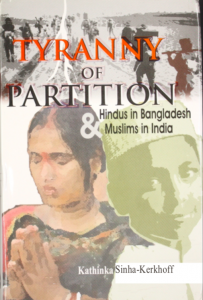
Tyranny of Partition. Hindus in Bangladesh and Muslims in India
Kathinka Sinha-Kerkhoff
2006
The establishment of new nation-states after the partition of British India in 1947 not only required new geographical boundaries but also a cognitive map with mental borders that inform who are included and excluded. This book concerns the 'tyrannical' workings of such borders on the mind of nation-builders in both Bangladesh and India. In the end, the author argues that if the continuation of the two nation-states circumscribed by geographical borders is desired, their cognitive maps have to be altered through new mental borders that de-partition these societies.

Tsimane' Oral Tradition, Landscape, an Identity in Tropical Forest
Tomás Huanca
2006
Tomas Huanca L., who lived with the Tsimane in Amazonian Bolivia for nine years, documented their traditions, oral history, and myths, retreating now in the face of outside pressure. He includes helpful chapter summaries, many photographs, maps, and charts, a glossary of Tsimane terms, a pronunciation guide, and a bibliography with extensive oral archival as well as scholarly sources. However, once the reader has found a useful section on a topic — a trickster figure, the use of tobacco and/or beer in healing ceremonies, or the Masters of the Game — compare-contrast material will be lacking. It is almost as if the Tsimane, alone among indigenous groups, incorporated tricksters, beer customs, and the like into their world view. This is most decidedly not the case. For this reason, readers who are familiar with other Amazonian indigenous communities will benefit from this ethnography more than readers looking for an introduction to the field.
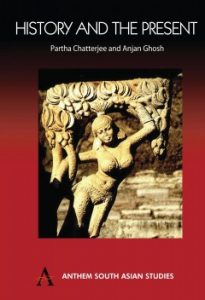
History and the Present
Partha Chatterjee, Anjan Ghosh
2006
The essays in this volume bring together historians and anthropologists to reflect on the place of history within present-day conditions. The central focus here is on aspects of the popular, on the ways in which the popular relates to the scientific, the professional, the aesthetic, the religious, the legal and the political. These essays represent a critique of the disciplinary practices of history. They examine the historian's practices and assumptions, being mainly concerned with finding a set of practices of history-writing that are both truthful and ethical. They are united by the desire to find a way out of the self-constructed cage of scientific history that has made historians wary of the popular. In his introduction, Partha Chatterjee spells out some of the requirements for this new analysis of the popular. He stresses the fact that in contemporary industrializing societies the popular should not be taken to be a homogeneous mass. On the contrary, he states, an awareness of the variety and innovativeness of the contemporary popular could rejuvenate academic historiography.
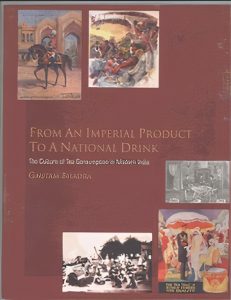
Partner:

From an imperial product to a national drink : the culture of tea consumption in modern India.
Gautama Bhadra
2005
This monograph has focused on the multiple genealogies through which tea acquired the unrivalled status of a national popular drink in modern India. Using an array of illustrations, advertisement, photographs, and cinema lobby cards, along with archival and literary documentation, the writer has emphasized the historical processes of percolation and representation hat made tea spread accross a number of paces in Indian culture.
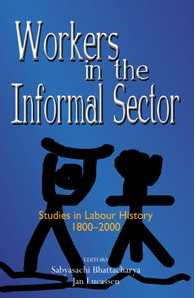
Workers in the Informal Sector. Studies in Labour History
Sabyasachi Bhattacharya, Jan Lucassen
2005
Workers in the Informal Sector puts together papers by experts interested in situating workers in the so-called informal sector in the context of economic development in the historical past and the empirical evidence regarding the existential condition of labour in the informal sector in less developed countries of the South. Some of the papers focus on the contemporary informalisation of labour under the impact of globalization, while other papers address the same theme in the light of long-range historical questions going back to the nineteenth century.

From an imperial product to a national drink : the culture of tea consumption in modern India.
Gautama Bhadra
2005
This monograph has focused on the multiple genealogies through which tea acquired the unrivalled status of a national popular drink in modern India. Using an array of illustrations, advertisement, photographs, and cinema lobby cards, along with archival and literary documentation, the writer has emphasized the historical processes of percolation and representation hat made tea spread accross a number of paces in Indian culture.
Children's Literature
Various Publishers
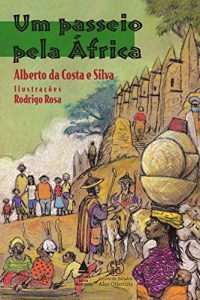
Partner:
Um passeio pela África
Alberto da Costa e Silva
2006
Zezinha, Gustavo e Inácio conseguiram convencer seus pais. Finalmente visitariam a África. Depois de algumas semanas de sonhos e muita ansiedade, chegou o grande dia. A tão esperada aventura começaria pelo deserto do Saara. E a viagem lhes reservava mais surpresas. Eles seriam recebidos por um guia diferente em cada região e conheceriam tudo sobre as grandes cidades, seus povos, culturas e histórias, além de um monte de curiosidades e detalhes de cada lugar. No roteiro, além do Saara, Tombuctu, Gaô, Kano, Ifé, Lagos, Luanda, Namibe, Acra, Bissau, Dacar. Na bagagem, um bocado de curiosidade, bastante disposição e muita aventura.Neste seu primeiro livro para jovens, Alberto da Costa e Silva nos guia em um agradável passeio por essa África desconhecida de nós, brasileiros. Com um texto belo e instigante, Um passeio pela África é um convite inusitado que nos revela as origens de muitas de nossas tradições, costumes e falares. As ilustrações de Rodrigo Rosa complementam a viagem e as cenas tão bem-descritas pelo autor.
